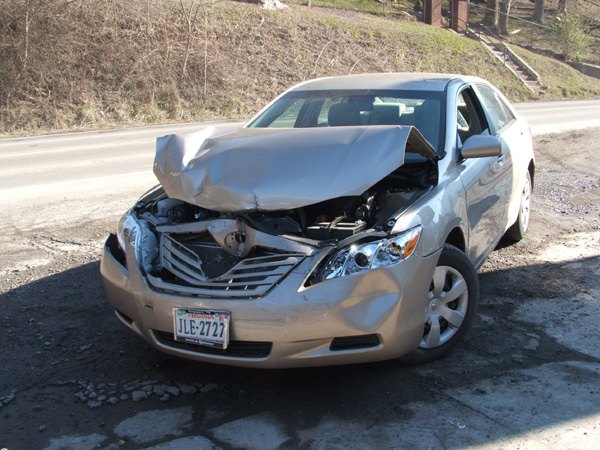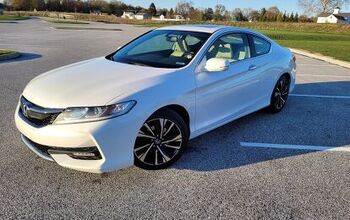Toyota Outbrakes The Competition In UK Brake Failure

We at TTAC pride ourselves as “equal snarkiness journalists”. We don’t care if you’re GM, Toyota, Honda, Hyundai, Fiat or anyone else. You try to pull the wool over our eyes, we’ll strike back with the truth you’re trying to hide. Likewise, not only are we journalists, we are also humans and as such we have our own brands and marques which we are partial to. Anyone who’s ever read my posts and articles (and not just to comment on my regional grammar and spelling) will know that I like, very much, Toyota and Jaguar cars. But that matters not a jot today. I am a blogger and an impartial one at that, so when I say this next article pains to me write, trust me, it PAINS me!
5. Mitsubishi: 2.48%. 4. Peugeot: 2.55%. 3. Fiat: 2.74%. 2. Chrysler: 2.78%.
No surprises here. We have the weakest of all Japanese makers, Mitsubishi and Peugeot in 5 and 4, respectively (If they ever do link up, imagine how reliable THOSE cars will be!). Then we have Fiat and Chrysler in 3 and 2, respectively (Those cars makers HAVE linked up, so that should be fun). But in number one position for the highest brake failure rate is:
1. Jaguar: 3.73%.
Pardon me, while I’m sick. Jaguar beat Chrysler by almost 1%. This will be a huge blow for a brand which is trying to shake its old image of Ye Olde Worlde cars with woeful reliability. Another blow to Jaguar, in this survey was the model breakdown (insert your own joke here). Jaguar’s model with the highest brake failure rate was the Jaguar XK8 at 8.38%, a car which was meant to be driven at high speeds and, therefore, should have good braking. Got to love that British sense of humour. Number one position was held by Peugeot’s 407 model. “When it comes to safety-critical car parts, the brakes are top of every motorists list of items that should never fail,” said Warranty Direct’s Duncan McClure Fisher, “Not every brake problem will be a catastrophic failure though – brakes can have issues ranging from calliper malfunction to servo failure. These kinds of issue can be expensive to put right but they don’t always mean you’re going to have an accident.” Maybe Toyota could hire him as a PR speechwriter?

More by Cammy Corrigan
Latest Car Reviews
Read moreLatest Product Reviews
Read moreRecent Comments
- AZFelix What could possibly go wrong with putting your life in the robotic hands of precision crafted and expertly programmed machinery?
- Orange260z I'm facing the "tire aging out" issue as well - the Conti ECS on my 911 have 2017 date codes but have lots (likely >70%) tread remaining. The tires have spent quite little time in the sun, as the car has become a garage queen and has likely had ~10K kms put on in the last 5 years. I did notice that they were getting harder last year, as the car pushes more in corners and the back end breaks loose under heavy acceleration. I'll have to do a careful inspection for cracks when I get the car out for the summer in the coming weeks.
- VoGhost Interesting comments. Back in reality, AV is already here, and the experience to date has been that AV is far safer than most drivers. But I guess your "news" didn't tell you that, for some reason.
- Doc423 Come try to take it, Pal. Environmental Whacko.
- 28-Cars-Later Mazda despite attractive styling has resale issues - 'Yota is always the answer.


































Comments
Join the conversation
Typical brake faults include squeals, roughness, and so on and so forth. Do you really think that 1 in 30 cars has brake FAILURE? Until that data is properly stratified I don't think you can really call it failure.
Sorry to be all kind of factual about this Cammy, but the only problem Toyota have in relation to brakes coming from this current bout of anguish in the media, is with the Prius. You perfectly highlight the problem they've got - someone raises a question about quality and a brand, and immediately everyone thinks it universally applies to every aspect of what the company is doing/ has done in the past. There's no reason to imagine that Toyota would be high up that list. As it is, the brakes on the Auris were shockers and i'm guessing that most of the warranty issues would relate to that one model. As for the Prius, it's not even like the brakes have failed. They just work differently under some obscure circumstances than what the customers expected. But there's no suggestion that they don't stop the car exactly as they were designed to do. Of course, if they weren't so awful at explaining themselves, then people wouldn't have all the fear and anguish about this. All the Prius recall will do is change the software to recalibrate how the brakes work. It won't improve the stopping performance one little bit - just change the feel on the brake pedal. As for Jag being #1, that's just terrible. I so hope Tata turn them round and make a credible alternative to the German premium cars. But they've got toget rid of those nasty, Chinese-OEM looking grilles (IMO).